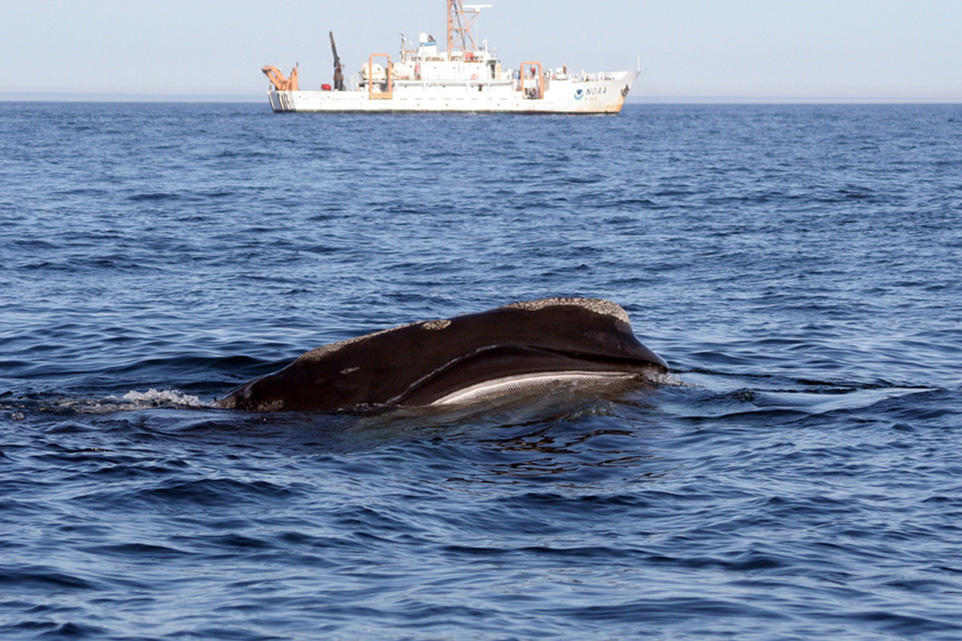
Caption
File photo of a North Atlantic right whale along the U.S. East Coast, with a research vessel in the background.
Credit: National Oceanic and Atmospheric Administration
|Updated: July 23, 2024 10:00 AM
LISTEN: The rare species is usually found off Georgia, Florida and New England, but one was recently spotted more than 3,700 miles away from the Peach State. GPB's Benjamin Payne reports.

File photo of a North Atlantic right whale along the U.S. East Coast, with a research vessel in the background.
A critically endangered species of whale sometimes found along Georgia's coast during calving season has been identified off the coast of Ireland for the first time in over a century.
The conservation organization Irish Whale and Dolphin Group announced that it had confirmed a North Atlantic right whale sighting in Northwest Ireland's Donegal Bay on July 15, after consulting with whale experts in Maine and Massachusetts about eyewitness video of the animal.
“My guess is, A, it's either lost or, B, it's like so many other species: species are on the move,” IWDG sightings officer Pádraig Whooley said. “It is remarkable. Every time you go out looking for whales now, you're kind of just saying, ‘Expect the unexpected' because things are changing rapidly out there.”
North Atlantic right whales typically forage in New England from spring to fall, with Coastal Georgia and Florida serving as their calving grounds during the winter.
However, climate change is “affecting every aspect of right whales' survival,” according to the National Oceanic and Atmospheric Administration, as rising sea temperatures have limited the availability of prey and shifted the mammals' migratory patterns farther north.
The species' last verified identification in Ireland occurred in 1910, when one was photographed on a whaling company's flensing deck — the part of a ship where the animal's blubber was removed for the production of whale oil.
Approximately 360 North Atlantic right whales remain in existence, according to NOAA, with vessel strikes and fishing gear entanglements posing the greatest threat to the species.
“It's really up to us as individuals and as a species,” Whooley said. “Do we feel that we are able to share this wonderful planet with this wonderful species? I hope we come to the right answer.”
Republican U.S. Rep. Buddy Carter of Pooler, who represents Georgia's 1st Congressional District, recently proposed a yearslong delay to NOAA's requested expansion of vessel slow zones, which are meant to protect North Atlantic right whales from collisions and entanglements.